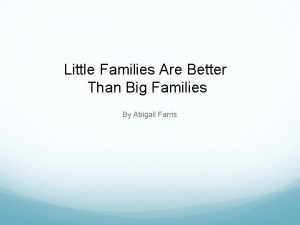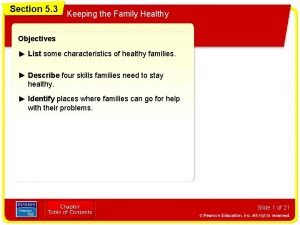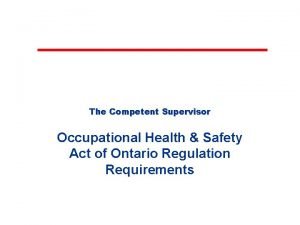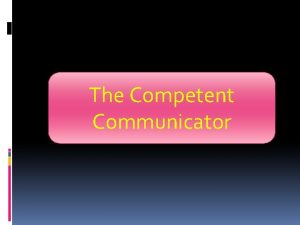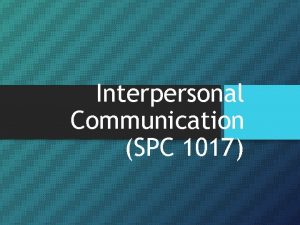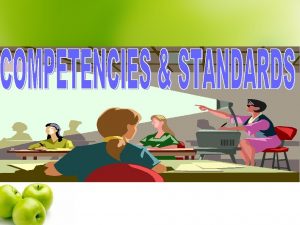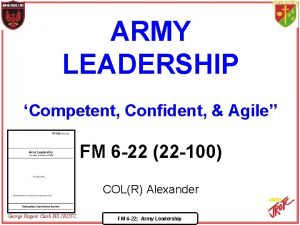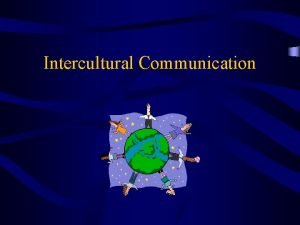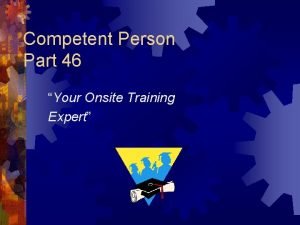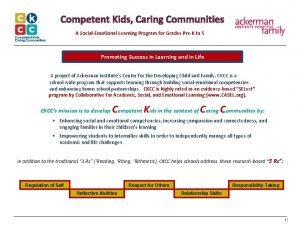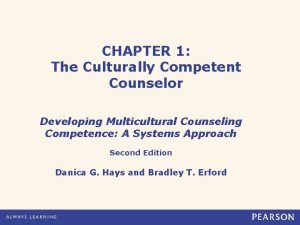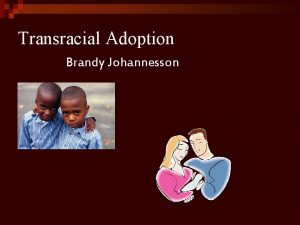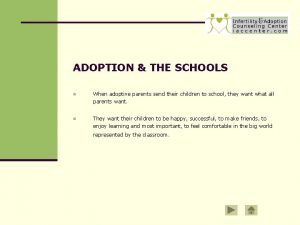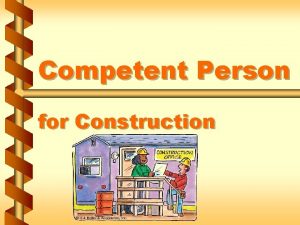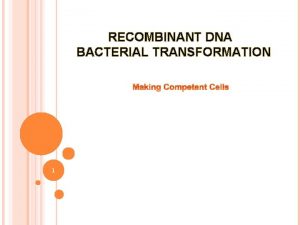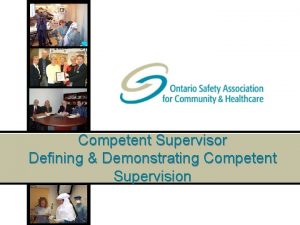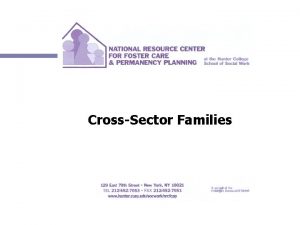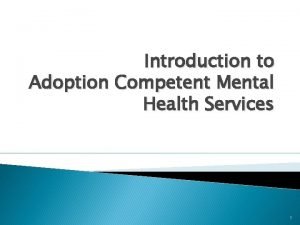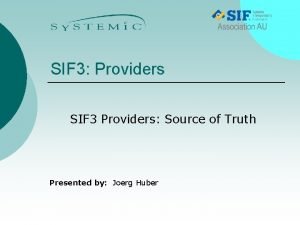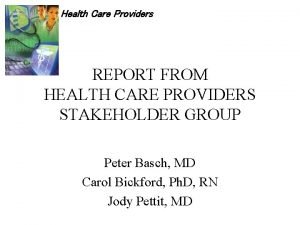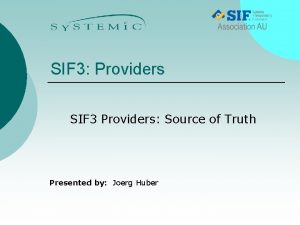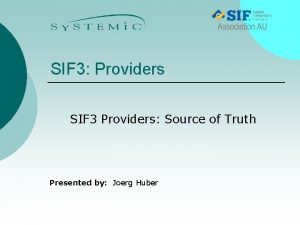WHY ADOPTIVE FAMILIES NEED ADOPTION COMPETENT PROVIDERS Catherine


























- Slides: 26

WHY ADOPTIVE FAMILIES NEED ADOPTION COMPETENT PROVIDERS Catherine Harris, MA DCF-FSD Post Permanency Manager Coordinator of the Vermont Consortium for Adoption and Guardianship

Agenda • Introduction • What is adoption competency • What have we learned from families • The 7 Core Issues in Adoption and Developmental Trauma • What do families say is helpful – and what isn’t • Resources to help you become more adoption competent

An adoption competent provider is one who is trained specifically in adoption issues and works with children and families to help smooth out the complex issues that sometimes accompany adoption. Definition

WHY ADOPTION COMPETENCY

WHAT DO WE KNOW ABOUT VERMONT FAMILIES FORMED THROUGH ADOPTION/GUARDIANSHIP? INFORMATION GARNERED FROM THE VERMONT PERMANENCY SURVEY – JANUARY 2017 SEPTEMBER 2018

Highlighted Mental health data by district: Does your child have a mental health issue that impacts their daily function? 100% 90% 30, 8% 80% 32, 6% 40, 0% 43, 1% 37, 0% 41, 3% 50, 0% 54, 3% 70% 54, 5% 60% 50% 40% 30% 20% 10% 0% Morrisville Newport St. Johnsbury St. Albans Hartford Percentage Without a Mental Health Issue Brattleboro Rutland Springfield Bennington Percentage With a Mental Health Issue 6

Summary of the services used across the state by children using mental health services 210 Families reported using mental health services for their child • 99% accessed individual counseling or therapy • 52% accessed psychiatric medication • 52% accessed personal care services • 50% accessed psychological assessment • 33% accessed cared coordination/case management • 16% accessed a coordinated service plan/ACT 264 • 12% accessed group counseling • 3% accessed substance abuse treatment

Most Important Services 8

Most Needed Services 9

BARRIERS TO SUPPORT & SERVICES 10

A closer look at access and provider barriers 11

7 CORE ISSUES OF ADOPTION

The Adoption Legacy Adoption is a fundamental, life-altering event. Like a wheel, it rolls along for a lifetime. The Rim = Secrecy & Denial The Hub = Loss & Grief Your Age Time line 0 10 20 30 40 50 60 70

Loss & Grief § Loss is at the core of adoption as it begins with the separation of a child from their birth parents. § Children who were adopted mourn this loss even when they are happy with their adoptive family. North American Council on Adoptable Children Fact Sheet

Abandonment & Rejection § Children who were adopted often feel their birth parents abandoned and/or rejected them. § They may reject or provoke others to reject them to validate their negative self-perceptions. North American Council on Adoptable Children Fact Sheet

Shame & Guilt § Children who were adopted often believe there is something intrinsically wrong with them. § They also may feel shame that their families look different than that of their peers North American Council on Adoptable Children Fact Sheet

Intimacy & Trust § Getting close to others can feel very scary to children who were adopted. § Children with histories of multiple placements and/or abuse, may have difficulty attaching to their new family and school community. North American Council on Adoptable Children Fact Sheet

Loyalty § Children who were adopted may have many mixed loyalties. § They love their birth family (even when they don’t see them) and they love the families that they have joined through adoption.

Identity § Children who were adopted often feel incomplete and at a loss because of gaps in their genetic and family history. § They may feel confused about where they belong and where they are welcomed. North American Council on Adoptable Children Fact Sheet

Mastery & Control • Children who were adopted may engage in power struggles with their parents or other authority figures in an attempt to master the loss of control they experienced in adoption. North American Council on Adoptable Children Fact Sheet

Developmental Trauma The term complex developmental trauma is used to describe a specific kind of chronic trauma and its effects on children: o Multiple adverse childhood experiences; o That begin at a very young age; o Caused by adults who should have been caring for and protecting the child Sources: Cook et al. (2005). Psychiatric Annals, 35 (5), 390 -398; van Der Kolk, C. A. , & Courtois, B. A. (2005). Journal of Traumatic Stress, 18, 385388.

How Children Respond to Trauma Developmental trauma can interfere with healthy development and affect a child’s: o Ability to trust others o Sense of personal safety o Ability to manage emotions o Ability to navigate and adjust to life’s changes o Physical and emotional responses to stress

HEARING FROM AN ADOPTEE

• Failed to believe, understand, or validate their experiences • Seemed blaming of parents for their children’s problems • Not knowledgeable about adoption issues • Inadequate assessment or lack of understanding of other important issues • Failure to include parents in treatment • Failure to address family issues • Pathologizing child or family • Questioning the parents’ motives for adoption • Telling parents to just give their child back to the state Adoptive Parents’ Responses Related to Quality of Therapists

• Accepting, non-blaming approach • Listen empathically, validate and understand experiences • Knowledgeable about adoption and related issues • Involve parents throughout child’s treatment • Address issues throughout the family • Help parents to understand their child in light of the child’s history • Help child address adoption issues • Provide strategies to address problems • Works collaboratively with others to assist family, and advocates on behalf of clients Helpful Help

Resources • Supervision with an adoption competent therapist • NTI online training: Adoption Competency for Mental Health Providers • UVM-CWTP: Online Adoption and Trauma modules • Upcoming UVM Summer Course • QIC-AG website • Continuing Journey • Seven Core Issues
 How does avery’s adoptive mother describe who avery is?
How does avery’s adoptive mother describe who avery is? Little families
Little families Hey hey bye bye
Hey hey bye bye Four skills families need to stay healthy
Four skills families need to stay healthy Henry viii divorce catherine of aragon
Henry viii divorce catherine of aragon Master of the surprise ending
Master of the surprise ending Expense prefix and suffix
Expense prefix and suffix Competent supervisor
Competent supervisor Competent persons report
Competent persons report Cimah regulation 1996
Cimah regulation 1996 Interculturally competent meaning
Interculturally competent meaning What makes a competent communicator?
What makes a competent communicator? Competent authority
Competent authority Characteristics of a competent communicator
Characteristics of a competent communicator Competent authority
Competent authority Antonym fail
Antonym fail Competent programmer hypothesis
Competent programmer hypothesis Specific competencies
Specific competencies Fall protection competent person training ppt
Fall protection competent person training ppt Army leadership styles
Army leadership styles The competent manager
The competent manager Competent intercultural communicators resist ambiguity.
Competent intercultural communicators resist ambiguity. Havisten competent
Havisten competent Define competent person
Define competent person Competent kids, caring communities
Competent kids, caring communities Competent jerk
Competent jerk Culturally competent counselor
Culturally competent counselor

